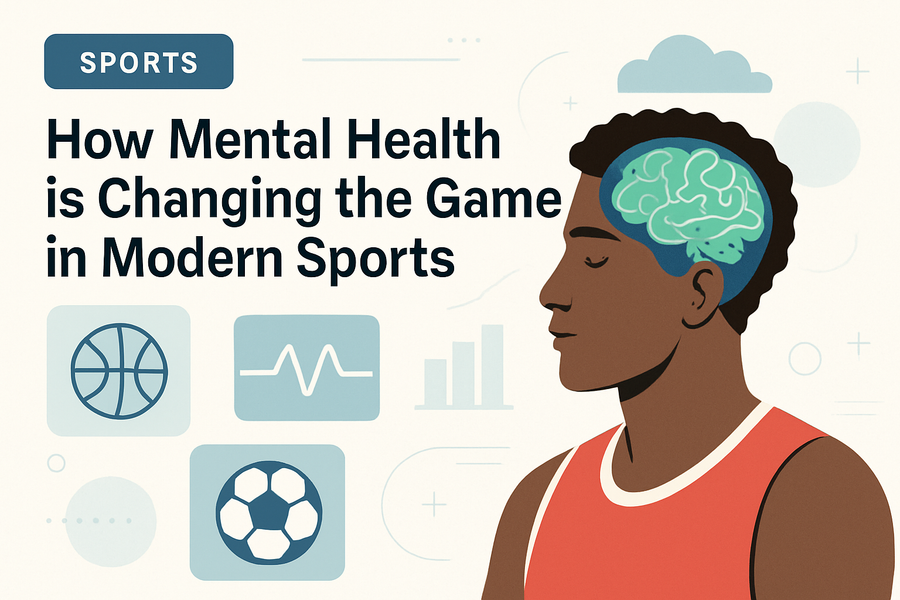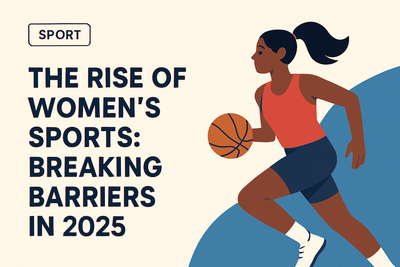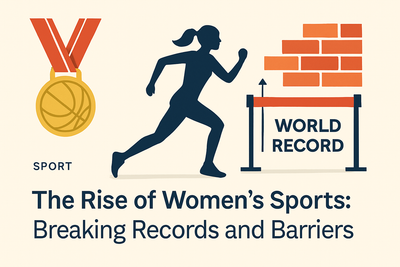How Mental Health is Changing the Game in Modern Sports
Introduction
In today’s fast-paced, high-stakes realm of professional athletics, mental toughness has long been celebrated as a hallmark of champions. But recent years have shown us that acknowledging mental health challenges isn’t a sign of weakness—it’s a game-changer. As athletes step forward to share their struggles with anxiety, depression, burnout, and stress, it’s clear that mental health is no longer on the sidelines. It’s now an integral part of modern sports.

The Rise of Mental Health Awareness in Sports
Breaking the Silence
High-profile athletes like Simone Biles, Naomi Osaka, and Michael Phelps have opened up about their personal battles with mental health, paving the way for a broader discussion. Their honesty has shattered decades-old stigmas and encouraged both fans and fellow athletes to view mental well-being as essential.
From Taboo to Training Priority
Mental health is now being incorporated into training regimes much like physical conditioning. Coaches and teams are hiring sports psychologists and wellness coaches to help athletes manage performance anxiety, deal with losses, and maintain focus under pressure.
The Impact on Performance
Sharpening the Mental Edge
Athletes who invest in their mental health often enjoy improved concentration, resilience, and decision-making skills. Whether it's handling a tough crowd or shaking off a poor performance, mental strength can be the difference between winning and losing.
Injury Recovery and Longevity
Mental health also plays a critical role in injury recovery. A positive mindset and emotional support can speed up rehabilitation, while managing stress helps prevent physical breakdowns. Ultimately, this leads to longer, more sustainable careers.
How Teams and Leagues Are Responding
Institutional Support
Organizations like the NBA, NFL, and FIFA have launched mental wellness programs and resources. They're providing confidential counseling services, mindfulness workshops, and even mandatory mental health training for staff and players.
Youth and Amateur Sports
The impact is filtering down to grassroots levels. Schools and amateur leagues are now integrating mental health education into their programs, ensuring that young athletes grow up understanding how to care for both body and mind.
Conclusion
The evolution of mental health in sports marks a profound cultural shift. By embracing mental wellness, athletes and organizations are not only enhancing performance but also promoting a healthier, more sustainable sports environment. As mental health moves from the shadows to center stage, it’s truly changing the game—for the better.








